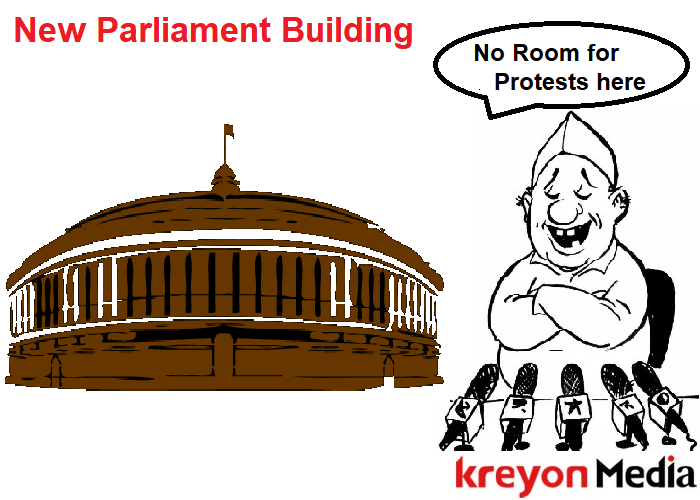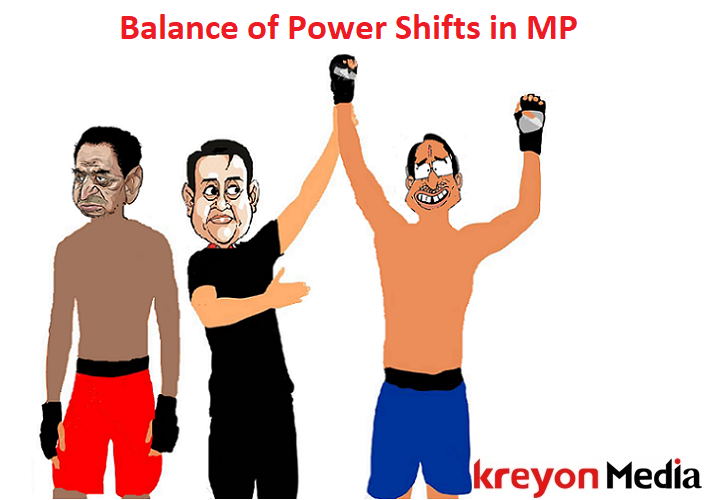12 Questions to Make the Right Choices in Life as Per Jeff Bezos
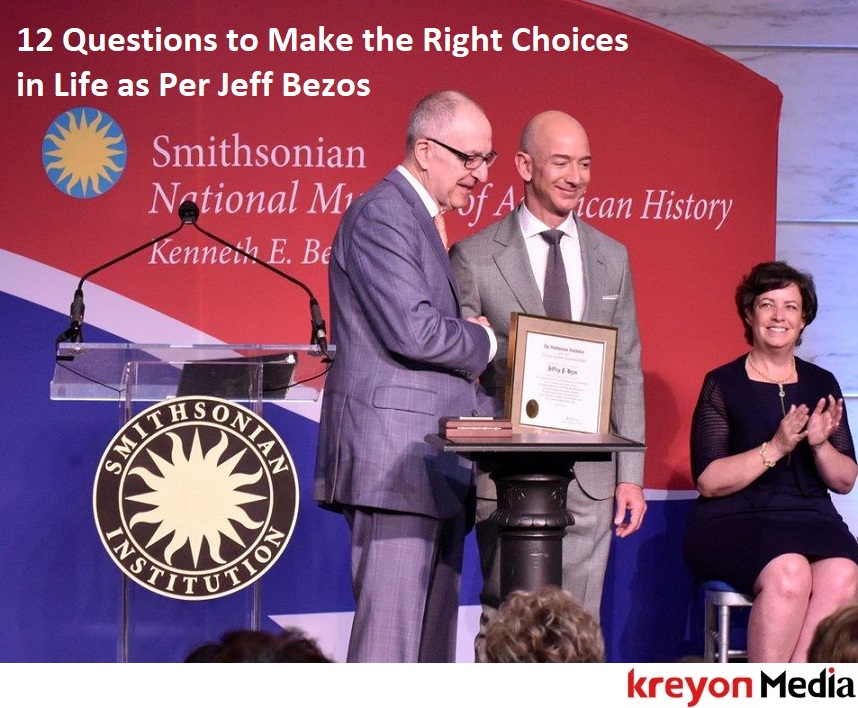
Making the right choices can be a daunting proposition in the world of changing priorities and dynamics. Many people struggle to make the big choices in life, they give in to the regular and mundane pursuits that consume them. But when it comes to the richest person in the world, Jeff Bezos, he has a clear framework that guides his choices.
Jeff Bezos is one of the most successful entrepreneurs and forward looking leaders in the world today. He is well respected for his personal qualities and approach that has helped him build Amazon into one of the most valuable companies in the world. He has often reflected on the principles that guide him to make decisions.
Your choices make you the person you are. In the long run, it is not the zeroes in your bank account, but the choices you’ve made that will define who you are.
Bezos said, “When you are 80-years-old, and in a quiet moment of reflection narrating for only yourself the most personal version of your life story, the telling that will be most compact and meaningful will be the series of choices you have made.” Here’s a list of questions that Jeff Bezos thinks you should think deeply and answer for yourself to guide your choices.
1. How will you use your gifts?
![]()
We are all blessed with certain gifts and the onus is on us to make use of these gifts. We can opt for the choices that help us build something bigger than ourselves with our capabilities. We can use our gifts and talents to create a compelling story for our lives.
2. What choices will you make?
It is the everyday choices, the decisions and the things that we do that shape our lives. Great achievers are long term thinkers, they think ahead and develop a long-term perspective of things. They are not short sighted and are able to develop the habits that help them achieve what they want.
When Jeff Bezos wanted to start Amazon, he thought about possibilities of failure, but went ahead because he didn’t want his life to end up in regret of not trying.
3. Will inertia be your guide, or will you follow your passions?
One of the biggest hurdles for talented people is that they are too busy to change anything. They are driven by the state of inertia, not willing to risk any action unless they’re compelled. Following your passions and dreams requires action and hardwork.
4. Will you follow dogma, or will you be original?
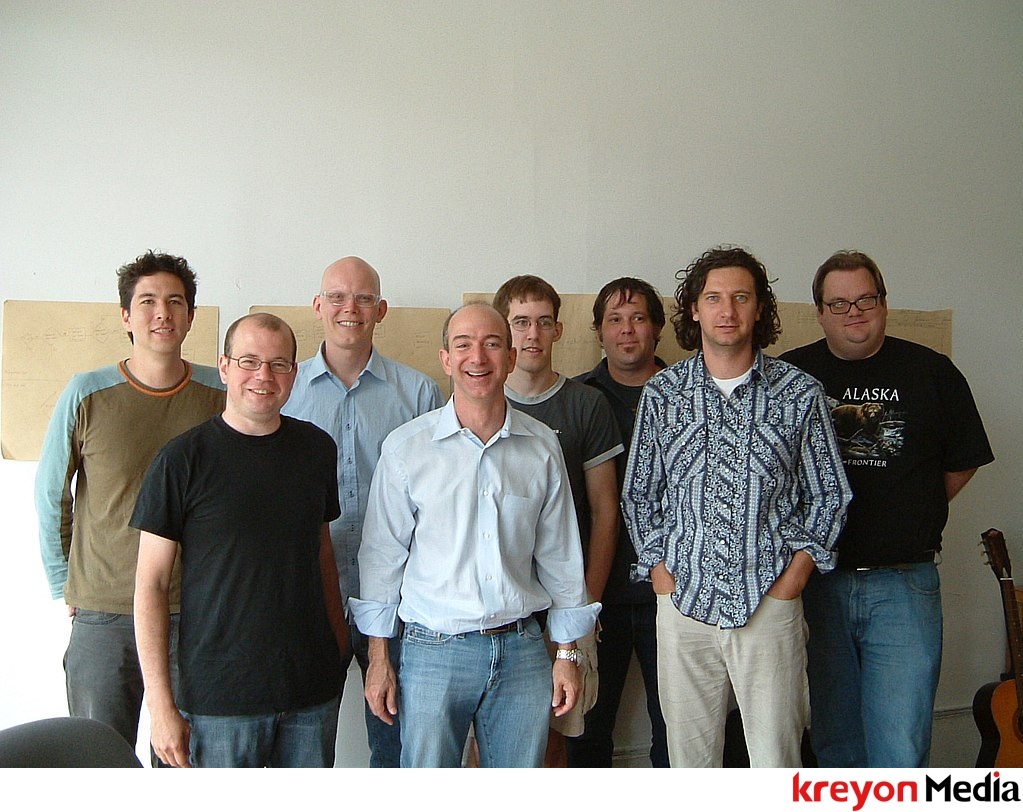
It’s always been like this is a mantra that leads to stagnation. People who are original are able to think through things and evaluate their actions. Are you a person who understands things or is happy following the regular course without thinking about them? Great things start with curiosity and willingness to try.
5. Will you choose a life of ease, or a life of service and adventure?
We can always choose the default state and have a comfortable life. But great leaders and achievers are driven by something higher. They are driven by a mission or a wrong they want to correct. They are willing to stretch themselves, endure and do whatever it takes to achieve their goals.
6. Will you wilt under criticism, or will you follow your convictions?
It is easier to find faults and criticize people for what they are doing. But it is hard to do things that make the difference. Many people are easily discouraged and give up what they want to achieve in the face of hardships or criticism. The top achievers learn to focus on what matters to them.
7. Will you bluff it out when you’re wrong, or will you apologize?

Your character is revealed in the moments you make a mistake. It is easy to bluff others, but you can never bluff yourself. If you have made a mistake, apologize and follow a corrective course of action. Deceptions will lead you astray and lose your credibility too.
8. Will you guard your heart against rejection, or will you act when you fall in love?
Jeff Bezos like many other successful people have mastered the art of rejections. They know that a systematic approach to experimentation, improvement and relentless efforts leads to success. Bezos has made the biggest bets of his career based on this ability to learn from failures.
9. Will you play it safe, or will you be a little bit swashbuckling?
You don’t get a second shot at life. We all have limited time and energy to make things happen. We can either go for our dreams or live in fear of failures, rejections and let life fizzle out. Successful people take chances, face the challenges and evolve with time.
10. When it’s tough, will you give up, or will you be relentless?

Everyone who decides to take the road less traveled has to face his share of struggles and challenges. Make no mistake about it. Successful people develop an inner compass that guides them through their struggles, they are able to endure longer and achieve things that they want.
11. Will you be a cynic, or will you be a builder?
Our energy creates the things we do. Jeff Bezos and top achievers spend more of their energy in building something, doing constructive things and not in merely fault finding. It is easier to be a cynic or a critic. But the glory goes to the doers, the achievers.
12. Will you be clever at the expense of others, or will you be kind?
Are you doing things that will make you proud? You can get ahead at the expense of other people, but that will not last. It will not create a legacy that you will cherish. Doing good, being kind and living your highest values will never hold you back in life.
4 Great Strategies for Entrepreneurs to Make their Time Count
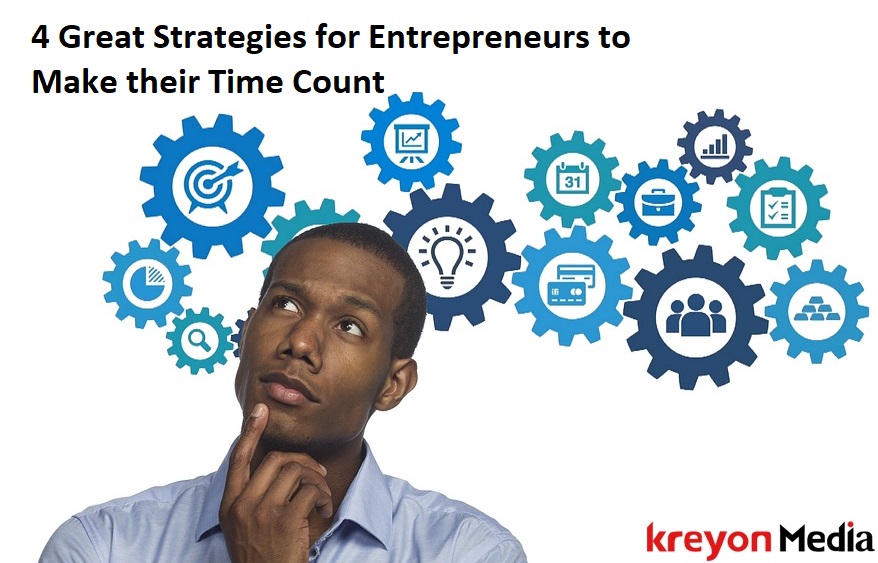
Time is a scarce resource, especially for entrepreneurs. When you are constantly bombarded with things that need your time, attention and energy, it is a challenge to prioritise things. Successful entrepreneurs learn the art of using their time most effectively.
As Warren Buffett once said, “Time is the friend of the wonderful business, the enemy of the mediocre.” How entrepreneurs use their time is akin to their growth and development.
Great entrepreneurs develop practices, routines and habits that help them get in the right frame of mind to get things done. They learn, unlearn and relearn new ways of doing things more prudently and in the process create value for others.
Entrepreneurs like Richard Branson have adopted a cool and casual approach to business administration. He often spends time talking to people from his travels around the world, takes adventurous expeditions around the world, but keeps an idea diary to note his ideas and keeps in touch for following-up with people whenever needed.
Phil Knight, Founder of Nike, used to find energy from his late evening runs. He spent time running, gathering his thoughts and ideating while on the run. Often, he would go for a 5-6 mile run at the end of his day. Warren Buffett is famously known for spending most of his day reading, building and updating his knowledge base.
Successful entrepreneurs and professionals are able to experiment and find a strategy that helps them make best use of their time. Here’s a look at some of the effective strategies adopted by successful entrepreneurs:
1. The 15 Minute Rule

Anthony Trollope was a author who wrote 47 novels, 18 non-fiction books, 12 short stories and 2 plays, in addition to a huge volume of articles and letters. This was back in 1847. No computers, Google and not even typewriters.
So, how did Anthony Trollope manage to write so many books. He revealed his secret, which was highlighted in the book, Daily Rituals by Mason Currey. Trollope managed to write in 15-minute intervals for three hours everyday.
He set himself a target of writing 250 words in 15 minutes. He mentioned, “It had at this time become my custom,—and is still my custom, though of late I have become a little lenient of myself—to write with my watch before me, and to require of myself 250 words every quarter of an hour”
Trollope further elaborates, “This division of time allowed me to produce over ten pages of an ordinary novel volume a day. If kept up through ten months, would have given as its results three novels of three volumes each in the year”
Trollope had mastered the art of productivity. He used short bursts of 15 minute intervals to measure his progress and achieved great results. It is a simple, but very effective strategy.
When entrepreneurs are focused and make use of their time, they can do a lot more work.
Smaller intervals are focused time periods that make people focused. The shorter time intervals focuses the mind towards priority targets, sets the pace for work and measures the results achieved.
It divides the work into smaller manageable units. For e.g. writing 10 pages sounds overwhelming, but writing 250 words is a more manageable proposition. It sets you into action mode, helps you develop the right momentum and confidence to complete your work for the day.
The pace of work improves significantly when work is measured in small intervals. When smaller tasks are completed with efficiency, it adds up a lot of value for a day. The best entrepreneurs learn to divide and manage their tasks.
2. Measure Speed & Impact
When work is allocated small units of time, it sets the pace for the day. There is progressive work and focused energy to achieve the tasks. Parkinson’s law states that “work expands so as to fill the time available for its completion.” It’s very true, especially when you have a distracted day.
Great entrepreneurs learn to measure the speed at which they are doing things. They make the best use of their time by measuring progress in short intervals like Trollope. By allotting the smallest intervals to complete a task, you can do more focused work and even do it with better quality due to fewer distractions.
The best entrepreneurs invariably share one common trait & it creates a massive difference. This is about focusing on work that maximises impact. As an entrepreneur it is not enough to measure the speed, infact, you may be good at things but you shouldn’t be doing them at all. You must choose and pick the things where you can create maximum impact for the organisation.
The top professionals figure out the core focus areas which will create the maximum impact in their work, they measure and improve these areas. And they leave everything else to focus on these areas.
3. High Performance Environment
Your environment is very important. As an entrepreneur, you can often decide how your environment should be. The best entrepreneurs create an environment, which helps them maximise their talents and abilities.
They do things that create maximum value for them and the organisation. They eliminate distractions and build routines that deliver great results for them. The successful entrepreneurs learn to separate themselves from all the noise around them and do meaningful work.
Your inner environment is also an integral part of your overall performance. When you are in a pleasant state, happy and focused in your work, you can achieve much better results compared to a stressed state. Entrepreneurs need to set the tone for themselves and their teams. The best entrepreneurs create an environment to maximise the efficiency of not just themselves, but everyone involved with them.
4. Time Blocking Schedule
One of the secrets behind successful entrepreneurs is their ability to devote time to things that they value the most. Elon Musk is famous for his 5-minute rule. Elon is known for his 5-minute blocks for different activities.
So, if he has to reply to emails, he uses the email block of 5 minutes to do it. He eats a meal in his scheduled block of 5 minutes. He divides his whole day into smaller blocks of time devoted to activities that maximise value for his day.
He avoids doing any activity that is not scheduled for the time. For e.g. he wouldn’t pick up calls that are not scheduled or meet people when he is in the middle of work.
The time blocking schedule is a very effective strategy that helps you pour all your energy into things you are doing. It helps you block time for things you want to do and eliminate everything else.
While it may not be possible for you to have 5-minute blocks planned for everyday. You can still adopt smaller time slots and schedule activities for your day. It will help you increase your productivity, concentration and avoid additional hours for your work.

Whole Foods CEO John Mackey: How to Develop Employee Morale
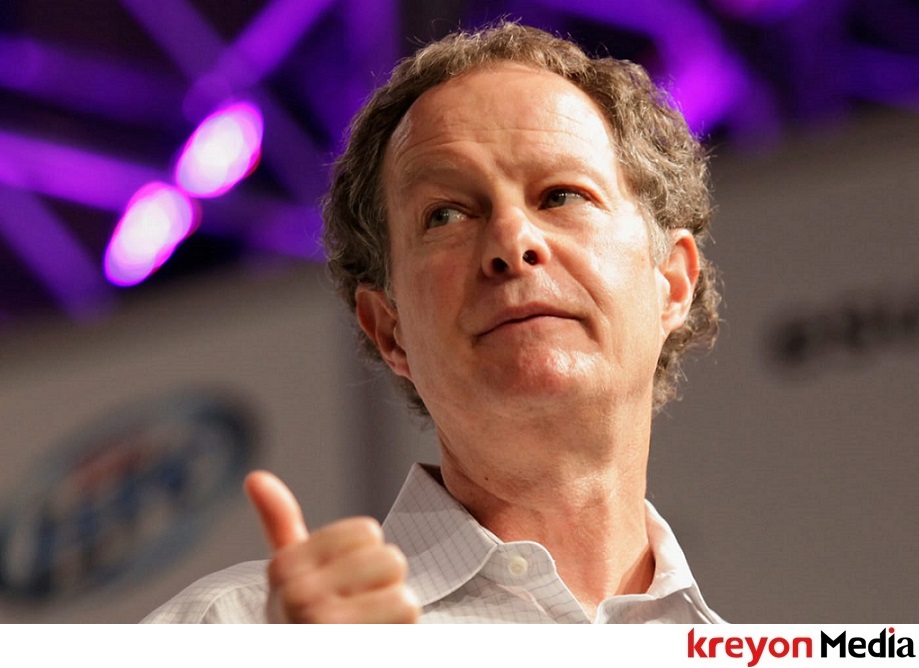
Whole Foods CEO John Mackey, just revealed his mantra for dealing with employee morale. He has been at the forefront of building a successful brand. He has spent over four decades in making Whole Foods, one of the most valuable food brands in the world. From the early days in 1978, when he founded the company by raising $45,000 from friends and family to selling the network of grocery stores to Amazon for $13.7 in 2017, he has seen it all.
John Mackey is very sensitive to the needs of his employees. He understands that it takes great communication skills to nurture your team and help them grow in their careers. As a boss, you need to know that your employees hang on to each word you utter. You may not know it, but they are mindful of every word you speak.
Criticism Vs Praise
John describes his experience when visiting a store on Freakonomics Radio, “I can give 10 compliments, but the one criticism devastates the morale.”
People are very sensitive to what their leaders have to say. So, communication needs careful consideration, else it can demotivate and demoralize the team.

Mackey has the distinction of building a supermarket chain that employs more than 90,000 employees and operates in over 500 locations. He says, “Because I am the founder, the CEO, I have a larger-than-life impact on the team members. They want ‘daddy’ to really love the store, and they don’t want criticism.”
He understands that it is hard for people to take criticism, especially, when you’ve not established trust with them. When times are turbulent, people are more susceptible to emotions & it could easily have a counterintuitive effect.
Establishing Trust
Mackey further elaborates his point, “In my experience, criticism will only be received by people if there’s a high degree of trust. If there’s trust, and people know that you care about them, then their self-esteem is less threatened. Because self-esteem is not usually very high with most people, you have to be very sensitive to the criticisms.”
While feedback is important, how you deliver the right inputs matter a lot. Employees are generally vulnerable, when there is critical feedback from the top leader. So, what is the solution? Mackey reveals his approach & says, “I know this. So, what I do is I give nothing but praise when I’m in the store.”
But is everything always rosy? Not quite, then how do you let people know when something is wrong. As a leader, it is your responsibility to find out things that need improvement, point out areas where the team is doing things wrong and let them correct things. Mackay uses an effective strategy for this, “If I see some problems, I might tell the store team leader, kind of one on one. But I try to not offer criticisms when I’m there, because they’re just too powerful, ” says Mackey.
When Mackey is touring a store, he insists on making positive remarks and catching people doing the right things. He reserves his critical feedback for one to one meetings with store leaders. A very pragmatic approach that has helped him build his supermarket chain.

“Trust is a fundamental factor in how employees receive feedback,” as per M. Tamra Chandler, an author & researcher into employee performance. It corroborates the point John Mackay made about feedback.
People are fearful and apprehensive of the feedback. Chandler says, “It is very physical, the reaction that people have to feedback.”
The amount of trust that employees have in their leaders affects their level of fear. When the employees have a strong trust, they’re more open and receptive to feedback. But when they don’t trust their leader, they are fearful & their performance also decreases.
Positive Interactions
When employees and leaders have positive interactions, it builds trust between them. These interactions help build rapport with your team. It puts them at ease, helps them to understand your viewpoint & connect with you as a leader.
Mackey says about his interactions with employees, “they don’t know me well enough to know they can trust me.” It takes time for leaders to win trust of their employees, Mackey says, “it is a long process. So, we should be very judicious in our criticism.”
Mackey recommends using positive interactions by catching people doing the right things. He says, “So, I definitely believe in positive reinforcement. And then if you do enough positive reinforcement, people are going to be in a place where they can receive the critical feedback. That gives you permission to give negative feedback. That’s actionable. So, we just need to be careful about it. And if you can’t do it, you’re going to be the type of leader that people avoid.”

Leaders need to be very careful that their teammates don’t develop apathy towards them. When strong relationships are built and trust is established, it gives freedom to leaders to communicate openly with their teams. Whole Foods CEO John Mackey shows why empathy & emotional intelligence is important for leaders. It helps them establish trust and rapport to build winning teams.
7 Practical Tips for Improving Your Emotional Intelligence

Improving your emotional intelligence can help you understand and connect better with others. It can help you develop stronger relationships, handle conflicts effectively & rise up the ladder of leadership. Success at work is no longer limited to your cognitive abilities, it needs emotional intelligence to have a deep perception of people and the world around you.
Emotionally intelligent people understand their emotions and feelings. They also understand the emotions and feelings of other people. They use the emotional understanding and information to guide their thinking and behaviour, to adapt and achieve one’s goals.
A study done by TalentSmart measured 33 workplace skills, intriguingly emotional intelligence was the strongest predictor of performance, and accounted for 58% of success in all types of jobs. 90% of top performers have high emotional intelligence, whereas only 20% bottom performers have high emotional intelligence.
Another fascinating study on emotional intelligence followed 80 scientists over the course of forty years. It found that social and emotional abilities were four times more important than IQ in determining professional success and prestige.
Several studies have shown a strong correlation between high emotional intelligence and top performance. So, here are some practical ways to improving your emotional intelligence:
1. Develop Routines
Emotionally intelligent people develop routines. They take practical steps to trigger their day to day activities. For e.g. the most influential and effective leaders have morning routines. They start their day by running, exercising or meditating. They follow their routines each day without fail.
These routines help them get in the right frame of mind to take the day forward. It sets them up in the right mood to carry out challenging tasks at work. Build a morning routine that can help you start your day on a positive note. You can start with a 5 minute walk, then gradually increase it by 5 minutes every week, until you can devote 25-30 minutes at least.
2. Action Bias

It is easy to be moody, turbulent and lose focus of the most important things in life. But these things are not going to matter in the long run. The distractions today will be worthless tomorrow. Emotionally intelligent individuals are self driven, they are focused, they control their emotions and feelings to achieve their goals.
Overcoming inertia and impulsiveness requires you to take action. Successful people take actions. They don’t clutter their heads with unnecessary disturbances. They do what is needed. Eliminate things that don’t help you reach your goals and overcome hurdles by taking actions
3. Managing Relationships
Good relationships are integral to success in the workplace today. Whether it is your subordinates, family or your colleagues, managing relationships can be a key step to your career & family goals.
People who have emotional intelligence are able to manage their relationships better, they handle conflicts, negotiations and develop interpersonal interactions effectively.
Learning to manage & dealing with other people requires you to respect their perspective. Good leaders develop the art of understanding the feelings and emotions of others. They are able to rally behind a common goal despite the difference of opinions & make use of collective strength for overcoming difficult problems.
4. People Focus

In the modern workplace and life, technology and work takes priority for everyone. It is easy to lose focus of people. Individuals and high achievers are good at recognizing the feelings of others. They also develop their ability to decipher their verbal and nonverbal cues. For e.g. a colleague who is attending to a family emergency may not be fully tuned to work. An emotionally intelligent colleague will go the extra mile to make his colleague comfortable.
Small acts like this can go a long way in building good culture, strengthening your relationships and making a difference to the people around you. Emotionally intelligent people have a strong focus on people around them.
It is people who drive systems, technology and work, not the other way around. A people centric focus also helps individuals understand their client needs and wants, before they articulate them. Whether it is the organisation, family or clients, a people focused approach pays rich dividends.
5. Control Emotional Triggers
Emotional triggers cause impulsive behaviour. When you are emotionally turbulent, it can make you a vulnerable target. People who move up the ladder of leadership in various spheres know how to control their emotions.
Emotionally intelligent individuals don’t react instantly. They control their impulses and evaluate the situation before they respond. For e.g. when something is wrong, how you point out the correction is more important than the correction itself. Your task is to get the correction done, not to make the other person feel down for his mistake.
When something angers you, take a moment out, ignore and evaluate things in the proper perspective. Reacting impulsively can damage relationships and hurt other people. Sometimes, a detached and calm approach works best for things we care about the most.
6. Intersection of Goals & Happiness

Emotional intelligence leads to great results, but not at the cost of people. Organisations are in a state of flux due to dynamic and demanding work priorities. It can make leaders feel threatened, overwhelmed and take a short term view of things, this is where emotional intelligence matters.
People with high emotional intelligence are able to develop a deep rooted understanding of individuals and teams. They help each other become more effective in their work, derive happiness in reaching shared goals and progress as individuals too.
Emotionally intelligent leaders are able to align people in the right direction to display their passion, creativity and potential. They take cues to make sure their teams are happy and aligned to what they are doing.
7. Self Analysis
Improving your emotional intelligence requires self analysis. It needs self awareness. Do you understand yourself well? Do you take time out to reflect on how you are doing? Self evaluation is critical to developing and improving emotional intelligence.
Successful people are able to spend their energy doing what they love and want. They do things that matter the most. They are able to channelise their energies, thoughts and emotions.
When you radiate positivity in your actions and mind, it draws people towards you. On the other hand, negativity will distance others from you. Successful persons use positive emotions to inspire, influence, and create an impact in things they do.
Think about how you use your time, thoughts and energy. Are you able to spend them as well as you can? Great results and success is never achieved by chance. Be conscious, self aware and take time to reflect on how you can improve things you are doing.
What Makes People Happy Now? The Global Happiness Report has the Answers!
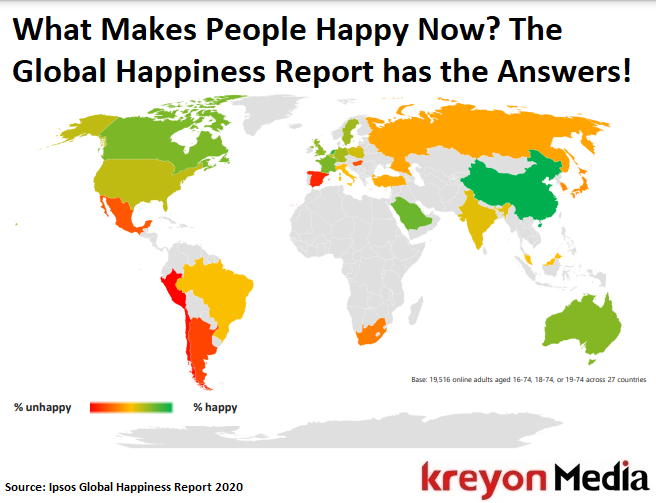
The world affairs have changed a lot in the last year or so. However, even with Covid the happiness levels around the world have remained largely unchanged as per a survey from Ipsos. The Global Happiness 2020 survey shows that 63% of the people around the world are happy compared to 63% last year. Here’s a look at what makes people happy.
The Global Happiness survey was conducted in 27 countries and 19,516 adults participated in it. Each country had over 1,000 participants. Overall, happiness levels do not show significant changes, but there are countries which showed a decline of more than eight percent like Peru, Mexico, India, Chile and the US. There are also countries which showed an increase of more than eight percent namely China, Russia, Malaysia & Argentina.
The participants were asked these questions – Taking all things together, would you say you are: very happy, rather happy, not very happy, not happy at all. Next, they were asked about things that made them happy. For e.g. Having more money: Does or could give me greatest happiness, does or could give me some happiness, doesn’t or couldn’t make me happy or happier, does not apply to me.
63% adults around the globe reported being happy, 11% of them reported being very happy and 52% rather so. Among the 27 countries surveyed, China with 93% had the highest percentage of happy adults. The Netherlands was second with 87% people who were happy, followed by Saudi Arabia at 80%.

France & Canada were fourth and the fifth on the list with each having 78% happy people. Countries with the highest percentage of adults considering themselves as very happy were Saudi Arabia 30%, India 22%, and the Netherlands 20%.
Least Happy
The countries which had the highest percentage of people who were not happy were Peru with 68%, Chile with 66% & Spain with 62% adults. They were at the bottom with least happy people in the countries surveyed.
Only six countries had less than 50% people who were happy. Compared to the global average of 63% who reported being happy, Peru, Chile & Spain, only had 32%, 34% & 38% happy adults respectively. Argentina, Hungry & Mexico were the other three countries with 43%, 45% & 46% happy people.
Sources of Happiness
Most people around the world derive joy from simple things like physical well being, relationships with spouse, family & children. It is not material riches or wealth, but health and physical well being that is rated as the greatest source of happiness by most people. Relationships, health and safety were rated as the major factors that made people happy in the Covid affected world.
Having more money was ranked tenth on the source of happiness for people. The top ten sources of happiness for people are as follows:
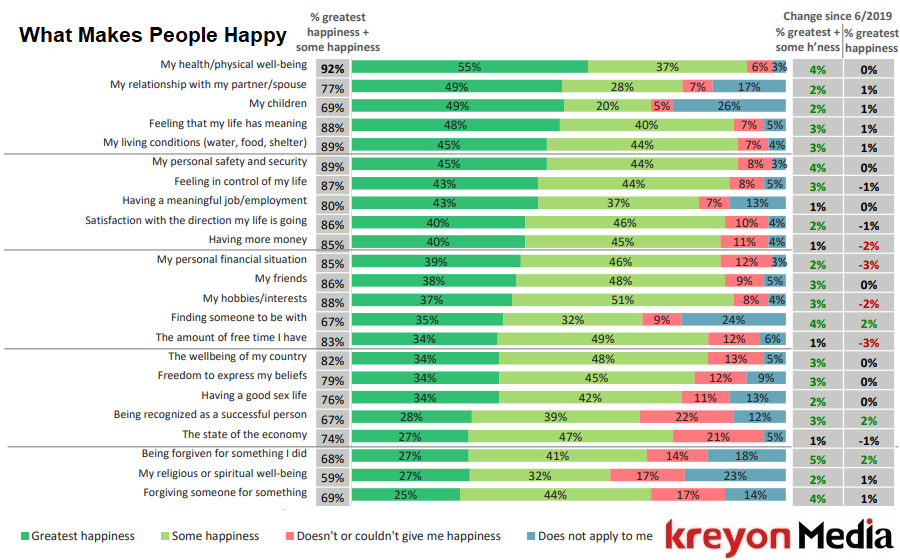
Money & Happiness
Does money buy happiness? Well, 40% of the individuals rated money as the source of their greatest happiness. While 85% of people said money made them happier. Money and financial situations do affect the happiness of people, but only upto a point. When the basic necessities and needs of people are met, money does not have a major impact on their happiness.
An interesting study by the Nobel Laureate, Kahneman & Deaton in 2010 revealed,“money can only buy happiness up to about $75,000 – after that, it has no significant effect on our emotional well-being.”
In the survey, South Africa is the place where maximum people (58%) rated money as their greatest source of happiness. Brazil (56%) & Saudi Arabia (53%) were the second and third respectively.
Time on Social Media
According to emarketer research, an average adult in the US spends 1 hour, 22 minutes every day on social media. People all over the world spend a fairly notable amount of time on social media. Does Social Media make people happy? The study had some interesting insights. More than 55% of the people said, social media does not make them happy.
The global average of people who derived happiness from social media was 45%. China has been home to some of the most popular social media and gaming platforms in the world. No surprise that 84% of Chinese people were happy using social media, followed by 73% in Malaysia and 70% in Turkey.
Meaning in Life
 Beyond personal safety and security, meaning in life is one of the greatest sources of happiness for people. 43% of the people rated feeling in control of their lives as their greatest happiness factor. 43% considered having a meaningful job or employment as the source of their joy. The satisfaction with the direction of how life is going was rated by 40% as a prime happiness factor.
Beyond personal safety and security, meaning in life is one of the greatest sources of happiness for people. 43% of the people rated feeling in control of their lives as their greatest happiness factor. 43% considered having a meaningful job or employment as the source of their joy. The satisfaction with the direction of how life is going was rated by 40% as a prime happiness factor.
Human beings are driven by meaning and our day to day experiences contribute to our happiness. Beyond a certain level, it is not money but meaningful involvement in something that drives human happiness. A research by Lyubomirsky, Sheldon, & Schkade in 2005 confirms, “Most of our happiness is not determined by our genetics, but by our experiences and our day-to-day lives.”
Decline in Happiness
The study also indicated declining levels of happiness since 2011. While the global happiness average was pegged at 77% in 2011, it has declined to 63% in 2020. The number of people who said they were happy has diminished by 14% globally.
Mexico & Turkey have seen a drop of 32% & 30% respectively in happiness levels according to the survey. While several other countries have seen a decline of over 20% since 2011 in the happiness survey.
South Africa, Spain, Argentina and India are some of the other countries where happiness levels have dropped by over 20%. China is the only country where people have reported being happier than 2011. Infact, 78% of Chinese people reported being happy in 2011 compared to 93% in 2020.
This Simple Secret Made Andrew Carnegie Rich & Successful

Andrew Carnegie was one of the most successful and rich persons in America. He was an American business magnate who made a great fortune in the steel industry and became one of the richest persons in history. Carnegie had migrated to the US from Scotland in 1848 at the age of 12. What made Andrew Carnegie rich in terms of wealth, impact & legacy he left behind is an inspiring tale.
Andrew Carnegie took up work as a telegrapher and then railroad jobs in the early part of his career. He kept moving at great pace and soon started his business. He owned Carnegie Steel Corporation in 1889, which was the largest Steel Company & sold it to JP Morgan in 1901 for over $300 million at the time. He surpassed John Rockfeller as the richest American for many years.
Andrew Carnegie was not just a successful business man, but a noted philanthropist too. He donated a large share of his wealth for charitable causes around the world. As per wikipedia, he donated approximately $350 million, which is equivalent to $76.9 billion (adjusted to 2015 share of GDP figures).
Andrew Carnegie Secret
Andrew Carnegie’s success story is captivating. He represents the epitome of the American dream. The son of a migrant, who worked odd jobs and built one of the most successful business empires of all time. He also dedicated a large share of his time and wealth for philanthropic causes.

So, what was the secret to Andrew Carnegie’s success? There goes an old story about Carnegie that reveals it. When Carnegie accumulated great wealth in a hurry, people started suspecting something wrong. Even the government officials suspected something fishy and so they set-up an investigation. What made Andrew Carnegie rich beyond regular standards at the time? The US Senate commissioned Andrew Carnegie and asked him questions to learn more on his business. They interrogated him from all angels and possibilities and finally came to the conclusion that there was nothing wrong.
Finally, one of them asked Andrew Carnegie, how did you manage to make so much money and become successful so fast? To which Carnegie revealed his secret of success, his words were very simple, but profound. He said, “I can keep my mind focused on something for five minutes at a stretch.” Just five minutes. Everyone was surprised to hear this. They thought he must be joking. Andrew Carnegie asked the members, “Can any of you do it?”
Everyone thought they could and started the experiment. But none of them could focus their mind on anything for even a few seconds. This is the nature of the mind, it is restless.
Andrew Carnegie had mastered the ability to keep his mind focused and attentive. He could explore new opportunities, visualise creative schemes and implement them with huge success due to his ability to pay attention. He had mastered the art of keeping an attentive mind, observed things with openness and receptivity, which helped him unlock great treasures. Others missed it, because they couldn’t pay attention, the same way Carnegie did it.
True Riches
Carnegie once said, “The money I have accumulated is but a minor fraction of my real riches.” At his peak, Carnegie had a networth of about $372 billion in today’s dollar terms. It would make him one of the wealthiest persons ever and richer than anyone on the planet currently. Carnegie’s riches and prosperity were a result of things he did with absolute care, love and attention.

Andrew Carnegie in an interview with Dale Carnegie told him, “Controlled attention magnetizes the brain with the nature of one’s dominating thoughts, aims, and purposes, thus causing one to be always in search of every necessary thing that is related to one’s dominating thoughts.”
When your dominating thoughts, attention and focus are aligned on something you want to achieve, you invariably achieve it. Andrew Carnegie had mastered the art of keeping his focused attention on the object of his desire. To keep your mind focused on something for five minutes is a great skill & one that pays rich dividends.
A Great Legacy
Carnegie had a doctrine of spending the first one-third of life learning, the second one-third accumulating wealth and the last one third in distributing money for worthy causes. Use of wealth for improving society and the lives of people was one of Carnegie’s most important objectives in life.
Andrew Carnegie donated his money for establishing trusts & institutions including Carnegie Museums of Pittsburgh, Carnegie Hall, Peace Palace, Carnegie Institution of Science (CMU), Carnegie Trust for Universities of Scotland etc. These institutions have stood the test of time and stand today as a symbol of endurance, excellence and human values, several years after Carnegie’s death in 1919.

To sum it up, Andrew Carnegie was one of the most influential persons of the world. He remains a respected person even 100 hundred years after this death due to his rich legacy. A legacy he had built with his charismatic leadership and energy. His journey from getting $2 ($59 adjusted for inflation today) per week to building a $352 billion empire is an inspiring tale for entrepreneurs around the world. The human race moves forward owing to great leadership of people like Andrew Carnegie.
Carnegie taught people a very simple mantra to put all attention, energy and focus into the work you’re doing. He said, “The average person puts only 25% of his energy and ability into his work. The world takes off its hat to those who put in more than 50% of their capacity, and stands on its head for those few and far between souls who devote 100%.”

